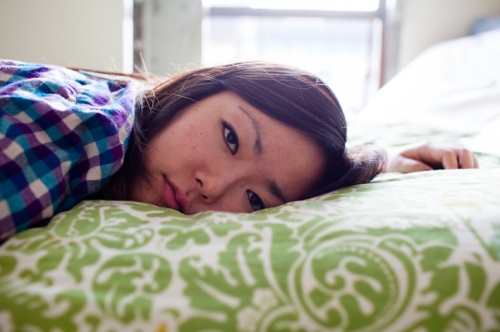
To My Family, Queerness is an Immigrant Thing
- Published in: Family & Parenting, Latinidad, Race, Culture, and Ethnicity
- Written by guest
- 1 Comment
- Permalink
I talked to a friend about the last post, and she posed that very simple question. To begin with: Having to justify the way my family and I, as a queer woman of color, view the world.
My family is comprised of immigrants to various countries (not just the U.S.) and people who live in Colombia. The way the older generations interact within this society— in pockets isolated from the mainstream—means that they’re dealing with gender, and life in general, in much the same way they did when they were back in Colombia: with plenty of struggle. My mother’s perspective on the matter is strict, and as much as she breaks her own expected gender roles, she lives with my grandfather’s conservative catholic teachings ingrained in her mind: the man is macho and head of family, the woman effeminate and a mother above all else. Now that she accepts my sexual orientation, she attempts to stay informed about the increased presence of sexual diversity through the few comedic gay men in her favorite Latin soap operas. But besides my mother, others in my family who don’t know about it worry little about the subject. Their main worries involve getting the right papers to be here, separation from loved ones for years at a time, validating their degrees if they have any, or becoming cleaners and painters to meet their basic needs.
To my family, queerness is altogether foreign not only as a practical concept, but mostly as an idea more closely associated with (North) American culture. The few queer family members I know of deal with their sexual orientations primarily through silence. With so many religious conflicts, social taboos associated with homosexuality, and more immediate needs to worry about, it seems selfish to want to talk about feelings so terribly foreign. In Colombia, an aunt shared an apartment for some time with another woman (one bed, a cousin noted) and no one even discussed it—not even she. It’s no surprise, with cases like hers, that lesbians are invisible in Latin America. In Colombia, the one lesbian actress who has been an icon for coming out (and briefly ruining her career before finally boosting it again) shared in an interview not too long ago that she just doesn’t want to talk about the topic because it hurts her family so much. In my own family, no one dares to touch the issue of my sexuality or that of any other family members except for casual derisive comments about others’ behavior.
To top it off, there’s also the problem around it being an “American thing.” Those of us who live here generally accept the challenge of living within U.S. culture because in order to get along we don’t have much of a choice. I won’t, however, deny that I flinched the first time my high school guidance counselor called me an American girl. In Colombia, I had heard wonders about the opportunities in the U.S., but distressful comments about its culture, and I dreaded being associated with it. I remember in particular that a friend told me to stay away from U.S. body piercings and tattoos, obvious works of the devil and somehow usually laced with cocaine. Eventually, my American step-father taught me that I should be grateful and embrace the term, but I still deal with some hiccups here and there.
The first time I returned to Colombia after six years of not going back, I sat in the dining room of an aunt who tore the U.S. apart and said that she would die before letting her children come and be turned into capitalist pigs. Burn. Later, I lived in Colombia for two months with my father, loved it, found resonance, but ultimately itched to come back home. In the States, my family taunts each other about being “gringos,” highlighting how much American culture remains, more often than not, an elusive (sometimes repulsive) question mark. If it weren’t for my generation’s inevitable dive into education here, we wouldn’t have much of a clue about what goes on around us. In the meantime, the older generation informs itself through a daily bread of night-time Spanish soap operas, where only this year they unveiled the first mildly realistic interpretation of homosexual men. As a result, the few conversations I have had about sexuality with my family revolve around the Latin American caricature of the gay man.
In the end, what I want to affirm is that the layers of experience that inform my family’s and my understanding of sexuality are not only different but very real, and just as legitimate as others. Whether I choose to dress a certain way, come out to my family, converse with them about the subject, or not at all, my choices remain linked to those very specific experiences.
- dsq_thread_id:
- 680010196
- tmac_last_id:
1 Comment
” there’s also the problem around it being an ‘American thing.’ ”
Being an international student in America, I truly relate to the above quote from the article. My parents, who are Chinese, think of the whole homosexuality thing as the new-wave liberalism that is corrupting youth in the US. They think of it as a sort of rebellion, to go against convention, to be gay, lesbian, bisexual, etc. But at the same time, I feel that there is a slight truth to what they are saying. I do feel more liberated in the states, and especially if one lives in a more liberal state, where homosexuality is more accepted, one is more open to experiment.